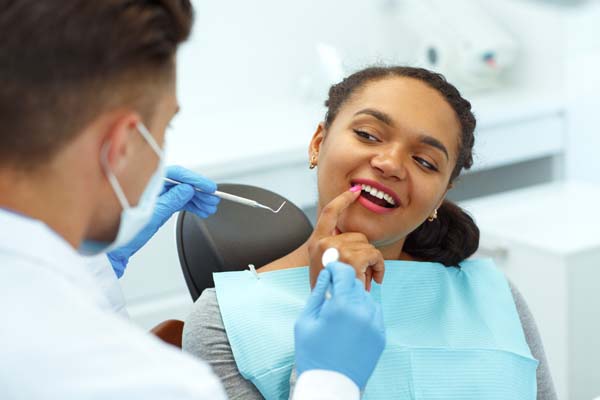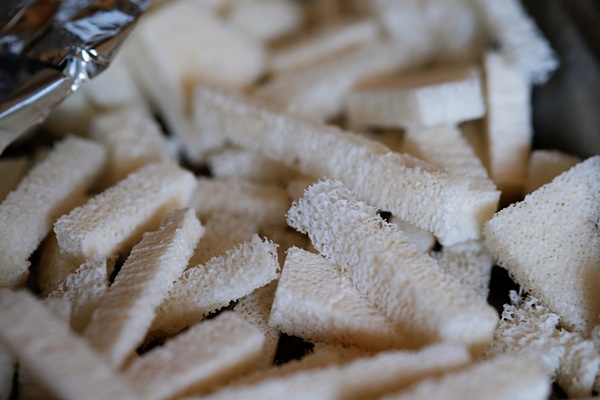6 Tips for Dental Implant Surgery Recovery

As with any oral surgery, dental implant surgery requires a period of healing. If you are considering dental implants, you should know that the procedure has a recovery time that is affected by a number of factors.
Tips for quick recovery
Following the instructions of your dentist and oral surgeon strictly will have you healed quicker and more effectively. Read on to discover our 6 tips for recovering after dental implant surgery.
Know that recovery time can vary
Each patient is unique, and each case of dental implant surgery will have a different recovery time. The factors that affect recovery time include the number of extractions, the occurrence of multiple implants and the health of the jawbone. When a jawbone does not have enough density, bone grafting (an additional procedure) might be necessary before implant surgery.
Eat soft foods
Soft, nutritious foods that are easily cut with a fork are essential immediately following surgery. Although most patients transition back to their normal diet after a period of weeks, continuing to eat soft foods is not going to hurt. Try to still avoid chewy, sticky foods as these are a bit more difficult to process for the temporary crown in the healing period.
For difficult procedures of one or more dental implant surgeries, try to eat soft foods for up to six weeks.
Avoid these habits
Certain bad habits can threaten the success of your implant, or at the very least cause you pain.
Nail biting
You will want to avoid biting your nails for the same reason that you want to eat soft foods. Hard objects can damage enamel and add unnecessary pressure on the new implant. Biting nails can be especially damaging if the implant has replaced one of the front teeth.
Crunching on ice
Chewing on ice is never a good idea, new implant or not. The combination of extreme cold and hardness of ice is a perfect storm for a cracked tooth. Chewing on ice can also irritate the newly placed implant and cause irritation.
Smoking
Dental implant surgery is a perfect excuse to stop smoking for good. However, the oral surgeon will usually only recommend that you stop smoking for at least a week post-surgery.
No alcohol
Alcohol should be avoided at least one month after surgery. Alcohol can have interactions with medications prescribed by your oral surgeon. Additionally, alcohol dries out the mouth and hinders the natural ability of the mouth to heal. Alcohol will irritate the surgical area as well.
Keep up the oral hygiene routine
Continue to brush and floss your teeth post-surgery. Rinsing the mouth with a mild oral rinse, or even with warm salt water can help to cleanse the new implant. Always brush with a soft-bristled toothbrush, and try to brush gently. Vigorous brushing can irritate your new implants and lengthen healing time.
Do not drink with a straw
As the area starts to heal, tissue and blood begin to rush toward the area to seal up the open wound. This tissue is not very secure, and it can be struck loose by any sort of pressure. Sucking on a straw creates a suction that pulls the tissue from the wound, causing the healing process to start over.
Contact us today if you have more questions, we are here to help!
Request an appointment here: https://spectrumsurgical.net or call Facial Spectrum at (816) 524-4334 for an appointment in our Lee's Summit office.
Check out what others are saying about our services on Yelp: Read our Yelp reviews.
Recent Posts
The jawbone is the part of the face that holds many essential elements together, such as the teeth, ligaments, and muscles; however, bone grafting may sometimes be necessary if the jawbone is too weak to perform these tasks. A person’s jawbone can deteriorate over time, whether due to age, genetics, poor oral health, cancer, or…
Finding lasting relief from issues such as misalignment and facial asymmetry can involve specialized procedures. Fortunately, corrective jaw surgery is a reliable option for addressing these concerns. A dental specialist realigns the upper or lower jaw during this process to promote better function and comfort. Although the procedure can benefit health and appearance significantly, a…
Many individuals seek rhinoplasty to enhance facial harmony, improve nasal function, or correct structural abnormalities. As a surgical procedure that reshapes the nose, rhinoplasty can address aesthetic concerns as well as breathing difficulties caused by structural defects such as a deviated septum. Understanding the consultation process, surgical techniques, and what to expect from the recovery…
The facelift is one of the oldest and most well-known cosmetic surgeries for restoring a youthful appearance to the face. If you are considering this procedure, it is important to understand the steps of the process and the time commitment involved. The specifics of the process can vary depending on the patient; however, here is…


